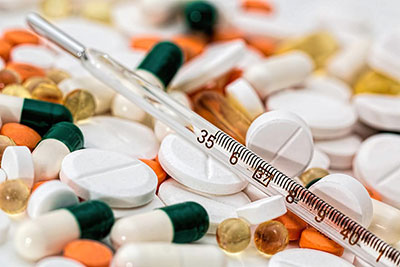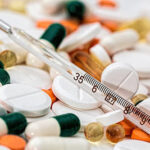 Healthcare in the United States is often touted as being the best in the world. However, there are 17 nations which rank higher in health and mortality. The cost of healthcare in the U.S. is incredibly high—we spend more on healthcare than the next 10 highest countries combined.
Healthcare in the United States is often touted as being the best in the world. However, there are 17 nations which rank higher in health and mortality. The cost of healthcare in the U.S. is incredibly high—we spend more on healthcare than the next 10 highest countries combined.
Medical mistakes contribute to a patient’s outcome. Some mistakes are unintentional and inevitable. However, there are categories of mistakes that go unaccounted for and therefore we do not know their full cost.
Patient safety is a serious global health concern. There is a 1 in a million chance of a person being harmed while traveling in a plane. In comparison, there is a 1 in 300 chance of a patient being harmed during healthcare.
– The World Health Organization (2019)
Medical mistakes can involve medication errors, unnecessary tests/procedures, overtreatment and leaving surgical instruments or sponges in a patient. Any mistake may be compounded when attempting to fix the original mistake. A 2011 study estimated the U.S. has over 40,000 harmful or lethal errors per day. A 2013 study estimates the annual number of deaths from medical mistakes at 400,000 per year. A Mayo Clinic survey from 2014 reports of 6,500 physicians surveyed, 10.5% admitted making a major medical mistake within the last three months. These numbers suggest medical mistakes are the third leading cause of death after heart disease and cancer.
For years, opioids were being sold as an ideal pain medication. Doctors were prescribing them because they were told opioids had an extremely low addiction rate. Opioids are chemically similar to heroin and highly addictive. Patients overdosed on opioids, and they became a leading cause of death among Americans under the age of 50. Physicians have now become cautious in prescribing opioids, but many patients are still addicted. This has caused patients to obtain the opioids illegally which are still causing unnecessary deaths.
In May 2022, nurse RaDonda Vaught, was convicted of criminally negligent homicide and abuse of an impaired adult for administering the wrong drug to a patient which resulted in death. This was the first time a medical professional was convicted for a medical mistake that was not intentional or involved fraud. Many medical practitioners believe unintentional mistakes should not be punished but used as a teaching tool to prevent future mistakes.
Some in the medical profession are now encouraging patients to participate in their care—something naturopathic doctors have long encouraged. It is better to be a partner in your health than merely a bystander.
Sometimes patients are impaired, under the influence of anesthesia, pediatric or elderly—in these circumstances a patient would do well to have an advocate with them. The advocate can listen, ask questions, and take notes with a clear head on their behalf. Patient care can be complicated and having an advocate can be of great benefit.
Medical professionals are slowly beginning to see that sometimes less is more. One of the best ways to accomplish this is to be under the care of a naturopathic doctor before you find yourself in a serious situation. Naturopathic doctors believe the body can heal itself of many ailments if your immune system is strong and healthy. NDs can collaborate with you to optimize your health—possibly preventing the need for drugs, tests, or an invasive procedure.
